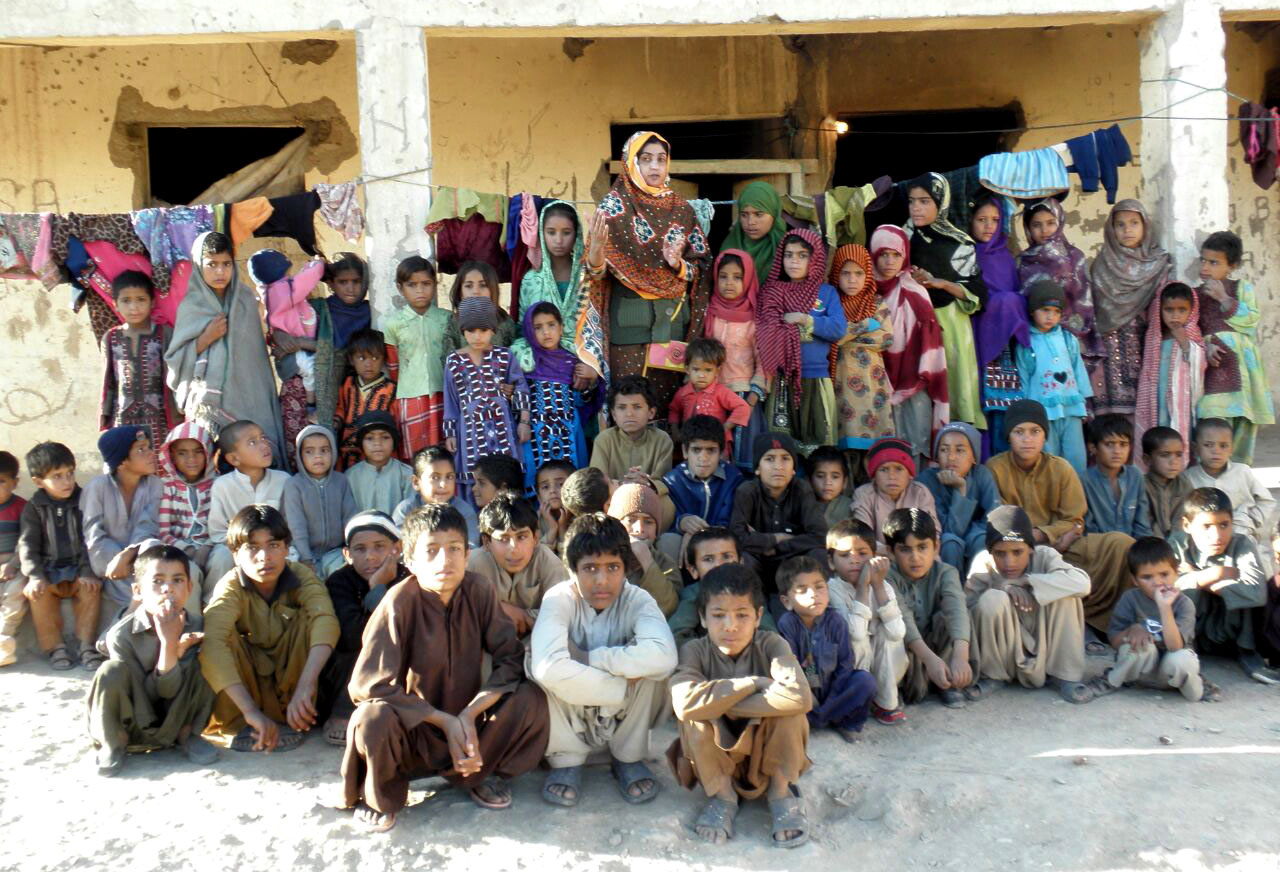
Quetta (by Malik Achakzai): Few candidates from Balochistan make it to the country’s superior civil services through the annual competition exam – the CSS or Central Superior Services. Observers put that to the poor quality of education in the province so that only those students from the province who study elsewhere in the country make it through the highly competitive exams.
Schools that exist but don’t function, ghost schools that only exist on paper, absence of teachers and resources and the widespread culture of “cheating” are just some of the symptoms of a dysfunctional education system in the province, according to education authorities in the province that have introduced a monitoring system to ensure the presence of teachers and students in the classrooms.
The Education Management and Information System (EMIS) would “keep a closer check” on the teachers and students in schools to ensure regular attendance, according the education authorities.
“Our aim is to eliminate cheating in the province because our talented students are no more eligible for competition exams owing to education based on cheating,” said Sardar Raza Muhammad Barech, adviser to Chief Minister Malik Baloch on Education.
In January 2014, the Balochistan government declared “Education Emergency” after Chief Minister Baloch visited examination halls in the province’s capital of Quetta and found students cheating during exams. People outside the examination halls were sending in “help” to students taking exams despite a ban on the presence of unrelated people near examination centres under section 144 of CrPC.
Under EMIS, student and teacher data is collected and computerized that will push attendance on part of teachers and students to a higher percentage, said Barech. He said the school exams would be monitored through cameras in examination halls.
“For the first time, we have been using the National Testing Service to transparently recruit teachers on merit,” said Barech. “Merit-based recruitment of teachers will go a long way in providing quality education in schools. At the same time, we looking into providing basic facilities to schools and building schools in areas where they are needed most.”
The ban on cheating will be applied in examinations held all over the province.
Alif Ailaan, a Pakistan based organization working on education, says two thirds of all children in Balochistan are not in school.
“There are 2.7 million children in Balochistan between the ages of 5-16, of which 1.8 million or 66% are out of school,” says an Alif Ailaan fact sheet on education in Balochistan. “Girls in particular are not staying in schools. At the primary level, the enrollment of girls is 35%. It drops to 9% in middle and 4% in high school.”
“I don’t think the ‘stop cheating’ campaign will have a positive impact on our young lot [students] when they are not taught properly, when basic facilities, teachers, laboratories and drinking water are not available at schools,” Maulana Abdul Wahid Siddique, former minister for education, told News Lens.
In the absence of basic facilities to impar education, he said, what will students write in their exam papers.
“The current government boasts they have allocated 24% of budget to education we have yet to see new schools, colleges or even post graduate colleges for boys and girls around the populated pockets of Balochistan,” said Siddique. “The remaining institutions (in the remote districts) also need to be brought under a proper monitoring system.”
The Balochistan Government Education department arranged an awareness walk led by the Chief Minister Dr. Malik Baloch in the month of March. The slogans of the walk were “say no to cheating in exam” and “good bye cheating”.
In his address, Chief Minister Dr Abdul Malik Baloch repeated the promise he made last year – his government’s resolve to end cheating in examinations. He said his government would introduce reforms in the education system to provide quality education to the young generation for “our bright future.”
An advertisement in the province’s leading newspapers last month said “say goodbye to cheating”and “stopping cheating is the mission of the current government.”
It said , “Cheating has crippled our youth in examinations and impeded their potential nationally, provincially and regionally.”
“I just visited the Brahvi speaking belt of Balochistan – Khuzdar as example – where cattle are kept in schoolrooms and some of the schools are used as living quarters,” Salma Baloch, a lawyer and a child rights activist told News Lens Pakistan. “No teacher, no students. You won’t see the required necessities for children in the middle of the city.”
“This show of resolve to stop cheating in Quetta is okay but does the CM or his adviser on education know the situation in the rest of districts in Balochistan?” asked Salma Baloch. “In districts and far flung areas, school teachers don’t visit classes. How can someone stop students from cheating when it is the the only way to get a degree in our dysfunctional education sector.”
She said Quetta was not the whole of the Balochistan, suggesting that the government need to focus on the rest of the province.
“In remote areas, there are no education facilities,” said Salma Baloch. “Girls are most affected in the sense that they are stopped from going to schools because of social taboos. On the other hand, there are no efforts on part of authorities to spread awareness for provision of quality education or basic education for children. Children with poor education will not appear in examinations. This way we cannot compete with the rest of the provinces to produce a qualified new generation. Ban on cheating is not the only solution to the problem.”
Najibullah, 17, a student of Model High School Chaman, who appeared in the examination told News Lens that the exams were pretty tough this time.
“Most of my papers went blank because I was not taught the stuff asked in the question paper,” said Najibullah. “Our school courses remained unfinished but the questions came from complete course that we have received no instruction in.”
Nadia Khan, a student of class 10 in the Model High School for Girls in Chaman is happy since she did well in here exams. “I had worked hard and had been to school regularly, so the exam went well this time again. The ban on cheating did not allow students who did not prepare to cheat. I request the government to keep the pressure on and i am sure the students will work hard for exams next year.”
Samiullah, 20, a FSc student a Science College Quetta told News Lens that the number of readers in the Public Library had increased. Most of the readers prepared for the forthcoming FSc/FA examination, he said. “They know this time it won’t be an open book examination, owing to strict actions by the government of Balochistan”.
Until the teachers are hired on political basis and they use their political affiliation to stay away from duty, we cannot hope for any change, said Abdul Wahid Kakar of Jamiat e Tulaba Pakistan .“Those who boast of development in education are themselves a hurdle in the way of education. Its main example is the nationalist parties whose teachers never attend classes.”
“Even after all this bellyhoo on part of the government to curb cheating, school exam halls were were full of girls busy cheating”, says Nargis Kakar, a school teacher. “Until the children are taught something prior to the examination, we won’t be able to stop cheating by force.We need awareness and provision of education first. I know no one will cheat when he or she knows that the course is taught in the class and the teacher present.”



